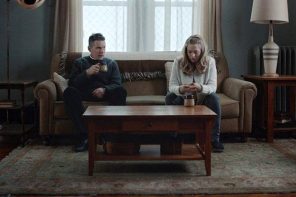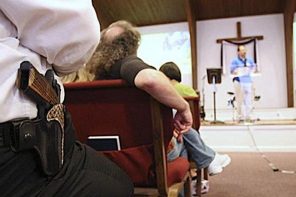Last year I was in Queens, and I over-prepared. I took Hurricane Irene seriously, though she wasn’t as bad as the predictions warned us. Just about one year later, however, another and far worse hurricane, a supposed once-in-a-century event, has slammed into New York City. Sadly, some have lost their lives, and millions more are affected.
My experience of the storm wasn’t terrible (thank Allah): Shut in in a northern Virginia apartment, I suffered some cabin fever and heard howling winds (and felt the drafty, leaky windows in my bones), but my power never cut out. My day with Sandy was mostly made up of my DVR’s previous few weeks of TV shows. I got to catch up with The Walking Dead, for example, and started Revolution.
A little too appropriately, perhaps. But like many others, I was also glued to hurricane disaster footage on local and national news, leaving me in the weirdly ubiquitous position of watching CNN report on what was happening outside my building and across the Northeast and praying it wouldn’t happen as badly as the predictions outlined. (I also admired CNN’s Ali Velshi, who seemed to have gotten stuck in a flooded street and just went with it.)
There was little time for partisanship, as indeed there should not be at a time like this. Except when I left my apartment this morning, and found a tasteless photocopy provided to me (as a doormat, I’d like to think) by Americans for Tax Reform. It read: “We’ve Seen Storms in Virginia. But Nothing Like This…”—with President Obama is superimposed on a stormy night sky. How tactful.
This wasn’t the only tasteless act, but certainly was the only intentional one I’d encountered. As for the unintentional? CNN ad time had already been purchased to fill up the in-between spaces, and living as I do in a swing state, I had to suffer through oddly inappropriate campaign advertising in between CNN’s breathless coverage.
Two ads in particular stuck out to me, for they indicated how differently we approach politics in a time of crisis. The first sequence of ads was all about the dangers of socialism and big government; some Hungarian refugee had bought up ad time explaining why he wanted to vote Romney and why we should learn lessons from the (read: his) past. We were warned of the dangers of redistributive politics; not only was the advertisement historically absurd—the U.S. is not a client state like Hungary was during the Cold War—the advertisement was also contextually absurd.
If there is one thing people need during a national disaster, it is functioning and effective government. If there is one time we need redistributive justice, it is during a crisis. Much of politics perhaps just comes down to what is, and is not, a crisis—a hurricane I hope we can all agree on. But what about climate change? Or health care? What is life-threatening? What is an emergency?
I found myself infuriated by the advertisement. Who had purchased this, and who thought it a good idea to run it while we watched footage of out-of-control fires in Queens and exploding transformer stations in Manhattan? No government or an ineffective government leaves us with post-New Orleans Katrina, a disaster that helped doom the Bush Presidency; last year, New York City went into overdrive, going out of its way to be ready for Irene.
That was a good thing, and thank God Irene wasn’t as bad as we thought she might be. This time around, maybe last year’s preparations will make New York City’s recovery from this disaster more efficient and more complete—perhaps people are alive today because of how seriously local, state, and federal government took Sandy’s potential to harm. But there’s something we should linger on in the aftermath: Why are annual hurricanes walloping New York City?
The second ad that greatly puzzled me featured a call to repeal EPA regulations, in favor of exploiting America’s coal. Now, I don’t know about you, but the last thing I was concerned by during the previous 48 hours were onerous EPA regulations. Perhaps we need more of them, so we don’t have to prepare for storms that cost lives and leave us billions of dollars in the hole, potentially year after year.
Even West Virginia, the state probably most associated with American coal, experienced a late-October blizzard that paralyzed much of the state and cost loss of life; a weird consequence of the confluence of weather systems that produced this frankenstorm. We cannot of course trace any single weather event to climate change, but we can be left with certain critical impressions that should be part of our political conversation.
First, we need government in times of crisis—those who are badly affected by storms are often afflicted for no particular reason, but still require help from their fellow citizens (consider my earlier question of what constitutes a crisis). The affected are just in nature’s randomized paths; and the same goes for other life crises. People lose jobs through no decision of their own, suffer circumstances they had no part in creating, or are deprived of health or wealth for reasons beyond their control.
Second, our infrastructure is already old and decaying—after this storm, it will need attention. The states whose populations most often advocate for this kind of investment are now most precisely in need of it. Will the rest of America continue to believe this is something the government doesn’t need to spend money on? (Namely, us?)
And third, is this the new normal? If climate change is going to produce, in general, these outcomes, then those of us so affected have ever-greater reason to be concerned by those who continue to live in denial.




